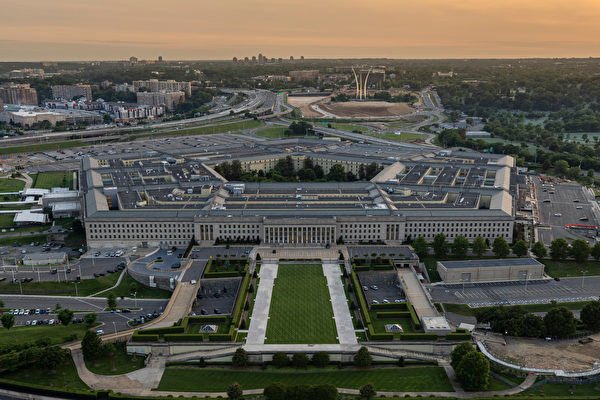During his re-election campaign, Donald Trump swore to overhaul the Department of Defense and rid the military of so-called “woke” generals. Now that he has been elected president, insiders at the Pentagon are contemplating what new policies Trump will implement.
It is expected that Trump’s views on military leaders may be rather bleak, given his previous skepticism towards NATO and readiness to deploy troops to quell protests in the United States, which had faced resistance from the Pentagon.
Military generals and defense secretaries during Trump’s first term were some of his harshest critics, with some even labeling him as fascist and declaring him unfit to serve as president, which angered Trump.
Current and former U.S. officials suspect that in his second term, Trump will prioritize loyalty, purging officers and career civil servants whom he deems disloyal.
Democratic Chairman of the Senate Armed Services Committee, Jack Reed, from Rhode Island, stated, “He will dismantle the Department of Defense, dismissing those generals who uphold the Constitution.”
The cultural war surrounding the “woke” movement could be one of the triggers leading to generals being fired.
In the eyes of supporters, “woke” represents criticism of racial oppression and stands for fairness and justice. However, conservatives believe that “woke” signifies a challenge to justice, a subversion of American cultural traditions, and their destruction.
In June, Fox News asked Trump if he would dismiss those referred to as “woke” generals. Trump replied, “I will dismiss them; a ‘woke’ military is unacceptable.”
Some current and former officials speculate that Trump’s team may target former fighter pilots and military commanders, including current Chairman of the Joint Chiefs of Staff, Air Force General C.Q. Brown.
General Brown, an African American four-star general, has been advocating and promoting diversity within the U.S. military.
Brown’s spokesperson, Navy Captain Jereal Dorsey, responded to requests for comments, saying, “The Chairman and all members of the armed forces will continue to focus on national security and defense, ensuring a smooth transition to the new administration of President-elect Trump.”
Trump’s Vice President-elect, Pence, voted against confirming Brown as the highest-ranking military officer in the U.S. and has consistently criticized resistance within the Pentagon to Trump’s orders.
Pence stated in an interview with Tucker Carlson before the election, “If people inside the government do not follow your orders, you must get rid of them and replace them with individuals responsive to the president’s intentions.”
A major U.S. military base was named after a Southern Confederate general but was renamed after the killing of George Floyd. Trump promised during his campaign to restore the original name.
Trump’s strongest anti-“woke” messages during the campaign targeted transgender individuals. He banned transgender individuals from serving in the military and described them as weak.
He suggested that the U.S. military could play a crucial role in many of his policy priorities, such as using the National Guard and possibly active-duty forces to assist in large-scale deportations of undocumented immigrants, including deploying them to address domestic unrest.
However, military experts believe that deploying troops on American streets not only violates the law but also could generate backlash from many Americans against the U.S. armed forces.
Following Trump’s election victory, outgoing Defense Secretary Lloyd Austin addressed the military, acknowledging the election results and stressing that the military will obey all legal orders from civilian leadership.
However, some experts warn that Trump has significant leeway in interpreting the law, and the U.S. military cannot go against their moral judgment to carry out legal orders.
Corey Schake from the American Enterprise Institute, a conservative think tank, rebutted, “There is a common misconception that the military can choose to disobey immoral orders, but this is not actually the case.”
Schake cautioned that Trump may dismiss senior military officials who resist his policies, expressing concerns that Trump’s reelection could lead to significant chaos due to the policies he attempts to enact and the individuals he appoints to execute them.
An anonymous U.S. military official downplayed these concerns, suggesting that creating chaos within the U.S. military’s chain of command could provoke political backlash, detrimental to achieving Trump’s goals.
The officer stated, “Those individuals tasked with executing Trump’s policies typically prioritize warfare and not politics; I believe they will find this satisfactory, at least they should.”
Current and former officials at the Pentagon speculate that career civil servants may undergo loyalty tests. They claim to have heard Trump’s supporters openly express their willingness to use executive orders and rule changes to replace thousands of civil servants with conservative allies.
A senior U.S. defense official, who wished to remain anonymous, stated that an increasing number of professional civilian employees within the Pentagon fear being purged by Trump.
The official expressed concerns, saying, “I am very worried about their situations.” They further added that some colleagues have already voiced worries about their job prospects.
Civil servants are non-uniformed personnel in the U.S. military, totaling nearly 950,000 individuals, often having years of professional experience.
The official fears that this could weaken the Pentagon’s military strength and expertise, causing irreparable damage to the Pentagon.
(Adapted from Reuters)

